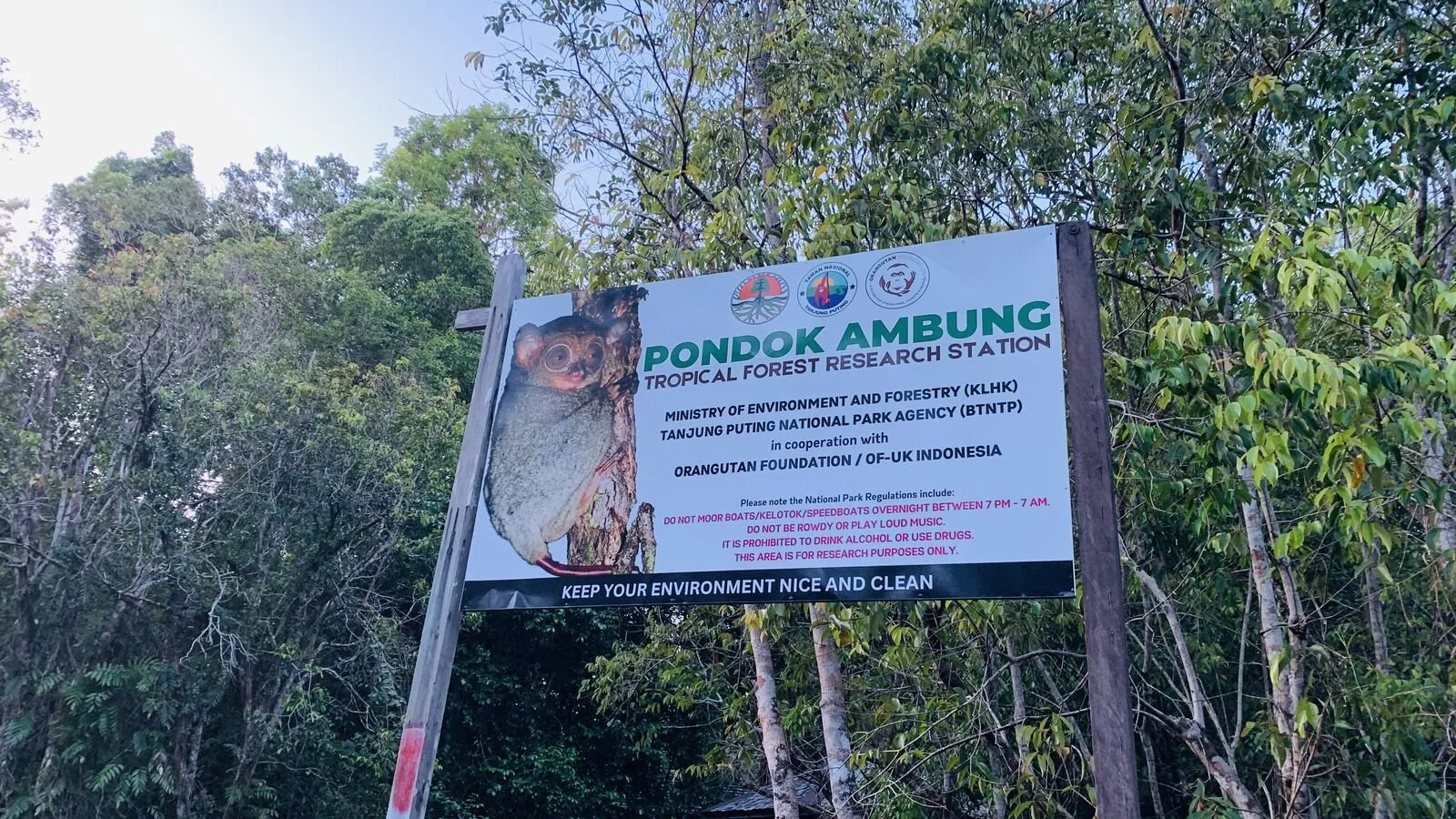PONDOK AMBUNG RESEARCH STATION
Pondok Ambung Tropical Forest Research Station is run by the Orangutan Foundation in partnership with the Tanjung Puting National Park Agency.
It’s located on the Sekonyer Kanan River within the National Park, which is one of the largest protected areas of tropical peat swamp and heath forest in Southeast Asia.
Our research
Our research team monitors the national park’s fauna and flora, which are rich in diversity. Through this site, we know the existence of the clouded leopard and tarsier in Tanjung Puting National Park – two species which are notoriously difficult to find and see. Other species record here included Orangutans, proboscis monkeys, gibbons, kingfishers, false gharial crocodiles, black rayed softshell turtles, binturongs, and sun bears
We use infrared remote sensing camera traps to capture images of the park’s many rare and nocturnal terrestrial species. Our research helps build a deep understanding of the biodiversity and environmental functions of this amazing rainforest ecosystem.
If you are interested in funding one of our research grants or helping us purchase much needed equipment - please get in touch!
Tarsier
Tarsiers are the only carnivorous primate species in the world which are often characterised by their large eyes and small body. Bornean Tarsiers are also endemic to Borneo and are listed as vulnerable by the IUCN Red List due to habitat loss and capture for the pet trade.
Our research in collaboration with Tanjung Puting National Park is helping to build up a picture of their population size and distribution within the National Park. Monitoring is carried out by our team at Pondok Ambung in the late hours of the evening and early hours of the morning as they are a nocturnal species. This data enables the National Park to make strategic conservation decisions to better protect the species.
Proboscis monkey
Proboscis monkeys are an endemic species to Borneo and are endangered due to the loss of their habitat. They are a priority species for Tanjung Puting National Park and as their partner, we assist in an annual population survey of the species. The National Park use population data to underpin their conservation management decisions for proboscis monkeys and their habitat.






